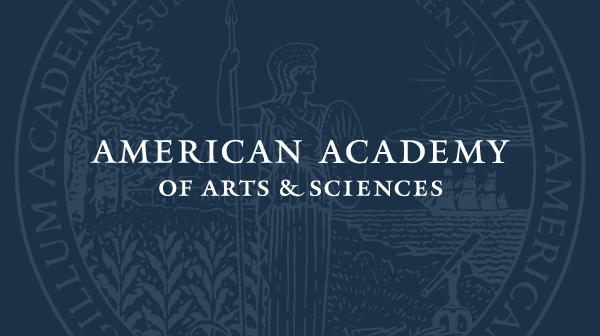Fellow of the American Academy of Arts and Sciences
Introduction
Since John Adams, John Hancock, James Bowden and other founding fathers founded the American Academy of Arts and Sciences during the War of Independence, they have been elected as academicians. It is considered one of America's highest honors.
There are about 4,400 academicians in the American Academy of Arts and Sciences, of which about 2,200 academicians are selected from various disciplines of natural sciences, about 1,700 academicians are selected from various disciplines of social sciences, humanities and arts, and about 500 academicians are selected From the field of public affairs and business.
Academician
Founding Academician
On May 4, 1780, the American Academy of Arts and Sciences was established with the approval of the Massachusetts Legislature. According to its charter, the purpose of the academy is to "promote academics so as to promote free, independent, and good civic virtues." The first dean was the first vice president and the second president of the United States, John Adams. The 62 founding academicians have broad interests and high status in various fields such as politics, professionalism, and business.
The founding academicians of the American Academy of Arts and Sciences include: Samuel Adams, John Adams, John Bacon, James Bowdoin, Charles Chauncy, John Clark, David Cobb, Samuel Cooper, Thomas Cushing, Nathan Cushing, William Cushing ( William Cushing), Tristram Dalton, Francis Dana, Samuel Deane, Perez Fobes, Caleb Gannett, Henry Gardner, Benjamin Guild, John Hancock, Joseph Hawley, Edward Augustus Holyoke, Ebenezer Hunt, Jonathan Jackson, Charles Jarvis, Samuel Langdon, Levi Lincoln, Daniel Little, Elijah Lothrup, John Lowell, Samuel Mather, Samuel Moody, Andrew Oliver, Joseph Orne, Theodore Parsons, George Partridge, Robert Treat Paine, Phillips Payson, Samuel Phillips, Jr ., John Pickering, Oliver Prescott, Zedekiah Sanger, Nathaniel Peaslee Sargeant, Micajah Sawyer, Theodore Sedgwick, William Sever, Stephen Sewall, David Sewall, John Sprague, Ebenezer Storer, Caleb Strong, James Sullivan, John Bernard Sweat, Nathaniel Tracy, Cotton Tufts, James Warren, Samuel West, Edward Wigglesworth, Joseph Willard, Samuel Williams, Abraham Willi ams, Nehemiah Williams, and James Winthrop.
Academician Election
From the beginning, the American Academy of Arts and Sciences are nominated and elected by existing academicians, and not only scientists and Humanities, including writers, artists, and all other outstanding representatives of professional and political fields. In the history of the American Academy of Arts and Sciences, about 10,000 academicians were elected, including John Adams, Thomas Jefferson, John James Audubon, Joseph Henry, Washington Irving, Josiah Willard Gee Booth, Augustus Saint-Golden, Robert Oppenheimer, Willa Cather, Eliot, Edward Murrow, Jonah Shaq, Yudola Wiedi, and Ailing Duke of Dayton. Foreign academicians include Euler, Marquis of Lafayette, Alexander von Humboldt, Leopold von Rank, Darwin, Nehru, Heisenberg, and Alec Guinness. Astronomer Maria Mitchell was the first woman elected to the American Academy of Arts and Sciences. She was elected in 1848.
The American Academy of Arts and Sciences has about 4,000 academicians and foreign academicians, including more than 250 Nobel Prize winners and more than 60 Pulitzer Prize winners.
Departments and Groups
The American Academy of Arts and Sciences is divided into five departments and twenty-four groups:
Ⅰ. Mathematical Sciences Department
1. Mathematics Group
2. Physics Group
3. Chemistry Group
4. Astronomy and Geography Group
5. Engineering Science and Technology Group
6. Computer Science Group
Ⅱ. Life Science Ministry
1. Biochemistry and Molecular Biology Group
2. Cell Biology, Development Biology, Microbiology, Immunology , Genomics group
3. Neuroscience, cognitive science, behavioral biology group
4. Evolutionary biology, population biology, ecology group
5. Medicine, Physiology, Pharmacy, Clinical Medicine, Public Health Group
Ⅲ. Department of Social Sciences
1. Psychology, Education Group
2. Economics Group
3. Political Science, International Relations, Public Policy Group
4. Law (Including Legal Practice) Group
p>5. Archaeology, Anthropology, Sociology, Geography, Demography Section
Ⅳ. Department of Arts and Humanities
1. Philosophy and Religious Studies Group
2. History Group
3. Literature and Linguistics Group
4. Literary Creation Group
5. Visual Arts and Performing Arts Section
Ⅴ. Department of Public Affairs, Business and Administration
1. Public Affairs, News and Media Group
2. Business Group
3. Education, Science, Culture and Charity Group
Chinese Academician
In history, he was elected The Chinese who are academicians of the American Academy of Arts and Sciences or foreign academicians include:
Hu Shi, philosopher, former dean of Academia Sinica, former president of Peking University, was elected as a foreign academician in 1932.
Wu Jingxiong, jurist, former dean of Soochow University Law School, former legislator of the Republic of China, drafter of the "First Draft of the Constitution of the Republic of China" (Wu's Xiancao), elected as a foreign academician in 1938 .
Weng Wenhao, a geologist, the first group of academicians of the Academia Sinica, the former president of the Executive Yuan of the Republic of China, was elected as a foreign academician in 1947.
Qian Xuesen, the father of China's aerospace, two bombs and one star, was elected as an academician in 1949.
Yang Zhenning, physicist, professor at the State University of New York, winner of the Nobel Prize in Physics in 1957, and elected as an academician in 1959.
Li Zhengdao, physicist, professor at Columbia University, winner of the Nobel Prize in Physics in 1957, and elected as an academician in 1959.
Lin Jiaqiao, a mathematician, professor at the Massachusetts Institute of Technology, and former chairman of the American Society of Industrial and Applied Mathematics, was elected as an academician in 1962.
Wang Ruixiang, a physicist and a professor at the State University of New York at Buffalo, was elected as an academician in 1970.
Wu Jianxiong, a physicist and professor at Columbia University, is known as the "Queen of Physics" and "Madame Curie of China". He was elected as an academician in 1972.
Ding Zhaozhong, physicist, professor at Massachusetts Institute of Technology, winner of the Nobel Prize in Physics in 1976, was elected as an academician in 1975.
Li Yuanzhe, chemist, winner of the Nobel Prize in Chemistry in 1986, former dean of the Academia Sinica, was elected as an academician in 1975.

He Bingdi, a historian, a professor at the University of Chicago, and former president of the Asiatic Society of America, was elected as an academician in 1979.
Wei Qianguang, a chemical scientist, a professor at Princeton University, and the former dean of the School of Engineering, was elected as an academician in 1982.
Qiu Chengtong, mathematician, professor at Harvard University, Fields Medal winner in 1982, and elected as an academician in 1982.
Wang Zhuo, biochemist, professor at Harvard University, was elected as an academician in 1984.
Wang Yiqiao, a biochemical engineer, a professor at the Massachusetts Institute of Technology, was elected as an academician in 1985.
Du Weiming, a Confucian scholar, Professor of Chinese History and Philosophy at Harvard University, was elected as an academician in 1988.
Zhu Jingwu, a physicist and former president of the Hong Kong University of Science and Technology, was elected as an academician in 1989.
Xiang Wuzhong, a mathematician and professor at Stanford University, was elected as an academician in 1989.
Xie Xide, physicist, professor and president of Fudan University, was elected as a foreign academician in 1989.
Xu Xiasheng, astronomer, professor at the University of California, Berkeley, former chairman of the American Astronomical Society, former president of National Tsinghua University, was elected as an academician in 1992.
Zhu Diwen, physicist, winner of the Nobel Prize in Physics in 1997, US Secretary of Energy, was elected as an academician in 1992.
Wang Gungwu, historian, former dean of the Australian Academy of Humanities, and former president of the University of Hong Kong, was elected as a foreign academician in 1993.
Weng Qihui, biochemist, dean of the Academia Sinica, elected as an academician in 1996
Qian Zenan, biochemist, professor at the University of California, Berkeley, Howard Hughes, USA Chairman of the Institute of Medicine, elected as an academician in 1997.
Liao Shuzong, a biologist and professor at the University of Chicago, was elected as an academician in 1997.
He Dayi, a medical scientist and a professor at Rockefeller University, was elected as an academician in 1997.
Wu Yizhong, biologist, director of the Molecular Cell Biology Laboratory of the National Institutes of Health, was elected as an academician in 1998.
Wang Youzeng, information scientist, professor at the University of California, Berkeley, former deputy director of the White House Office of Science and Technology Policy, and former vice president of the Hong Kong University of Science and Technology, was elected as an academician in 1999.
Li Wenxiong, evolutionary biologist, professor at the University of Chicago, was elected as an academician in 1999.
Li Taifeng, an astronomer, former director of the Institute of Earth Sciences, Academia Sinica, was elected as a foreign academician in 1999.
Yao Qizhi, computer scientist, professor at Princeton University and Tsinghua University, winner of the Turing Prize in 2000, was elected as an academician in 2000.
Yu Guofan, humanities scholar, professor at the University of Chicago, was elected as an academician in 2000.
Cui Qi, physicist, Princeton University professor, winner of the Nobel Prize in Physics in 1998, and elected as an academician in 2000.
Yao Hongze, a mathematician and professor at Harvard University, was elected as an academician in 2001.
Xiao Yintang, a mathematician and professor at Harvard University, was elected as an academician in 2004.
Yang Lisheng, mathematician, dynamic system theory expert, professor at New York University. Elected in 2004.
Xie Yu, sociologist, professor at the University of Michigan, was elected as an academician in 2004.
Lin Fanghua, a mathematician and professor at New York University, was elected as an academician in 2004.
Tian Gang, a mathematician and professor at the Massachusetts Institute of Technology, was elected as an academician in 2004.
Chen Yi, musician, professor at the University of Missouri-Kansas, was elected as an academician in 2005.
Qian Xu, a biomedical engineering scientist, a professor at the University of California, San Diego, was the winner of the National Medal of Science in 2011, and was elected as an academician in 2006.
Ha Jin, author, professor at Boston University, winner of the 1999 National Book Award, and elected as an academician in 2006.
Shi Chunfeng, a mechanic, a professor at the National University of Singapore, a former president, and the founding principal of King Abdullah University of Science and Technology in Saudi Arabia, was elected as a foreign academician in 2006.
Zhan Yunong, biologist, professor at the University of California, San Francisco, was elected as an academician in 2007.
Ye Gongzhu, a biologist, professor at the University of California, San Francisco, was elected as an academician in 2007.
Yuan Junying, biologist and professor at Harvard University, was elected as an academician in 2007.
Wu Hong, art historian and professor at the University of Chicago, was elected as an academician in 2007.
Xie Xiaoliang, chemist, professor at Harvard University, was elected as an academician in 2008.
Lei Gancheng, theoretical physicist, professor at the University of California, Berkeley, was elected as an academician in 2009.
Dai Hongjie, a physicist and a professor at Stanford University, was elected as an academician in 2009.
Hu Ling, microelectronics scientist, professor at Harvard University, was elected as an academician in 2010.
Chen Changqian, chemist, professor at California Institute of Technology, former deputy dean of Academia Sinica, was elected as an academician in 2010.
Weng Yulin, astronomer and professor at California Institute of Technology, was elected as an academician in 2011.
Zhang Shousheng, a physicist and a professor at Stanford University, was elected as an academician in 2011.
Zhang Shouwu, mathematician and professor at Columbia University, was elected as an academician in 2011.
Wang Yingzhen, a medical scientist, University of California, San Diego, was elected as an academician in 2011.
Hou Yizhao, a mathematician, professor at California Institute of Technology, and chair of the Department of Applied Mathematics, was elected as an academician in 2011.
Yang Peidong, chemist, professor at the University of California, Berkeley, was elected as an academician in 2012.
Luo Liqun, biologist and professor at Stanford University, was elected as an academician in 2012.
Shi Yigong, biologist, professor of Tsinghua University, dean of the School of Life Sciences, was elected as an academician in 2013.
He Tianlun (Tin-Lun Ho), physicist and professor at Ohio State University, was elected as an academician in 2015.
Cheng Yifan, biochemistry and biophysicist, professor at the University of California, San Francisco (UCSF), was elected in 2019.
Yan Ning, a structural biologist at Princeton University, elected in 2021.
Li Feifei, a computer scientist at Stanford University, elected in 2021.
Zhenan Bao, Stanford University chemist, elected in 2021.
Wu Hao, an immunologist at Harvard University, was elected in 2021.
Cai Lihui, a neuroscientist at the Massachusetts Institute of Technology, was elected in 2021.
Shen Yanan, geoscientist at the University of Science and Technology of China, elected in 2021.
Cao Hui, a physicist at Yale University, was elected in 2021.
Meng Huaiying, a communications expert at Stanford University, was elected in 2021.
Latest: Path planning
Next: Chen Zhijian (Academician of the National Academy of Sciences, Immunologist)








